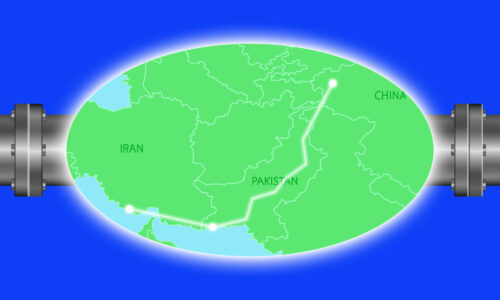China accuses G7 of slander and ‘Cold War thinking’ as Biden emphasizes values
The G7 world leaders concluded their first in-person summit since the beginning of the pandemic by criticizing China over several issues, including human rights. They also agreed to compete with China in infrastructure and vaccine distribution in developing countries.

Yesterday, the G7 nations — the U.S., Japan, the U.K., France, Germany, Canada, and Italy — finished their first in-person summit since the beginning of the pandemic and issued a communiqué named after Carbis Bay, the village in Britain where leaders met. The statement mentioned China in relation to five issues:
- COVID origins inquiries: “We also call for a timely, transparent, expert-led, and science-based WHO-convened Phase 2 COVID-19 Origins study including, as recommended by the experts’ report, in China.”
- Unfair economic competition: The G7 agreed to “consult on collective approaches to challenging non-market policies and practices which undermine the fair and transparent operation of the global economy.”
- Human rights: The G7 nations “will promote our values, including by calling on China to respect human rights and fundamental freedoms, especially in relation to Xinjiang” and Hong Kong.
- Taiwan: “We underscore the importance of peace and stability across the Taiwan Strait, and encourage the peaceful resolution of cross-Strait issues.”
- Maritime conflicts: “We remain seriously concerned about the situation in the East and South China Seas and strongly oppose any unilateral attempts to change the status quo and increase tensions.”
The Chinese Embassy in London responded (in English, Chinese) to the communiqué and each of the five points raised, accusing the G7 of “slandering China…interfering in our internal affairs…infringing upon our interests…[and] creating confrontation and friction.”
- A Xinhua News Agency commentary added that the G7 is a “living embodiment of Cold War thinking,” and dismissed the communiqué’s talk of “common values” as “no more than deeply entrenched ideological prejudice and sense of arrogance.”
But G7 nations were divided on how much to confront Beijing directly, the Wall Street Journal reports, with the U.S., Canada, and Japan pushing for more aggressive language on human rights, and others, including Germany and France, warning against antagonizing China in ways that could be counterproductive.
- The summit concluded with “no agreement on banning Western participation in projects that benefited from forced labor,” which would have been a more direct condemnation of some of the worst alleged human rights abuses in China, the New York Times reports.
BRI vs. B3W: Infrastructure competition through increasingly confusing acronyms
Beyond the five China-related issues addressed in the communiqué, the G7 nations agreed to move forward on two global initiatives that compete with Chinese actions.
- The Build Back Better World (B3W) Partnership, named after a campaign slogan and proposed domestic infrastructure plan of President Biden, is a “Values-Driven” infrastructure initiative that will “catalyze hundreds of billions of dollars of infrastructure investment for low- and middle-income countries in the coming years,” the White House says.
- B3W is meant to compete with China’s BRI (Belt and Road Initiative), but Gideon Rachman at the Financial Times notes that it is “likely to offer considerably less money — a point on which the G7 communiqué becomes notably vague.”
- The other initiative is a plan to offer a billion vaccine doses within a year to the developing world, but this, too, lags far behind the pace of global distribution of vaccines from China. Global health campaigners panned the plan as too little, too late, the FT reports.
Read more:
- The G7’s kinda sorta billion dose vaccine pledge for developing countries / China-Africa Project
“That billion dose figure includes donations that date back to February and previously announced aid. So, the actual number of new jabs that will be donated by the wealthy states will likely be much lower than what was announced by the G7…[Additionally, the] choice of the U.S. government to go with Pfizer to distribute to developing countries is a bit puzzling given the costly and complex subzero cold chain requirements that most poor countries lack.” - WHO chief urges China to cooperate with probe into COVID-19 origins / WSJ (paywall)
- NATO summit: Leaders to agree that China presents security risk / Guardian
- NATO to respond to China’s ‘coercive behavior,’ says Beijing does not share its values / CNBC






